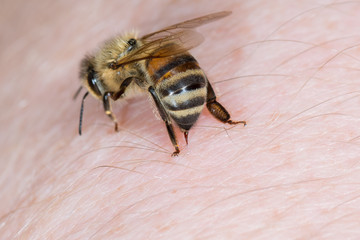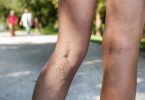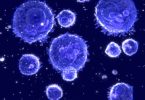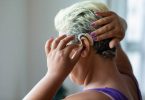5 Home Remedies for Treating Yellow Jacket Sting
Yellow jackets are scientifically known as Vespula Dolichovespula or Paravespula. They are small thin wasps with black and yellow colors and long black wings. Their black and yellow stripes may cause you to mistake them for honey bees. But honeybees tend to be rounder in appearance. Another difference is that honey bees, create hives that produce honey, on the contrary, yellow jackets live in nests, which are in secluded areas or the ground.
Additionally, unlike bees which only stings once and inject their stinger into you, yellow jackets can to sting you many times. When you get stung by a yellow jacket, it pierces your skin with its stinger and injects a toxic venom that causes quick and excruciating pain. You will also have inflammation or redness around the sting after a couple of hours after being stung. Other common symptoms include fatigue, itching, and heat around the area that was stung.
Yellow jackets sting to defend their nests from intruders, and they are very aggressive. They could even chase their intruder for long distances. A yellow jacket sting will cause a swollen, painful bump on the skin. Most times people can easily treat yellow jacket stings at home.
The pain and swelling around the site of a yellow jacket sting will usually subside in a few days without treatment. But to help you get better faster, someone home remedies for treating yellow jacket sting can reduce the pain and speed the healing process.
Symptoms of a Yellow jacket sting
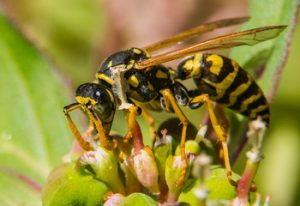
After being stung, you will begin to experience swelling, itching, redness and tenderness near the area that’s been stung. However, there are some symptoms that would require immediate medical attention. These symptoms may include:
- Coughing
- Wheezing
- Difficulty in breathing
- Stiffness in your throat
- Lightheaded or dizzy sensation
- Fainting
- Nausea
- Diarrhea
Home Remedies for Treating Yellow Jacket Sting
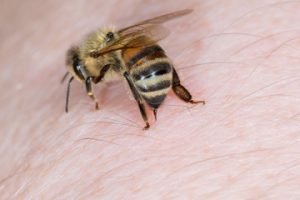
Below are some beneficial home remedies for treating yellow jacket sting. You can try them at home after you have been stung.
1. Use a Cold Compress
Ice numbs the stung area. When the ice is applied, it slows down the blood flow to the stung area — a cold compress aids in alleviating the pain and swelling caused by the wasp sting.
To effectively use this home remedy, apply a cold compress made with ice on the stung area. Use it to get immediate relief from the sting pain. Make sure you wrap ice cubes in a thin washcloth or small towel. Place the ice pack on the affected area and hold it there for 15-20 minutes. Don’t apply cold compress directly on your skin, because it can damage the skin and frostbite.
2. Onion
This one of the simplest home remedies to treat a yellow jacket sting. Place a slice of onion on the stung area for about 15 minutes, and you will begin to experience relief.
Onions are great home remedies for treating yellow jacket sting because they contain compounds that disintegrates complex proteins, peptides, and enzymes which are present in the yellow jacket’s venom. Onions do not remove the toxins out of the skin. However, it destroys the potency of the venom, which helps reduce the pain and inflammation.
To effectively do this home remedy, slice a raw onion and put it on the stung area.
Tie the onion in place with a towel or a gauze tape. Leave it like that for 30 minutes, then remove the gauze and wash the area.
3. Apple cider vinegar
Apple cider vinegar contains acetic acid, a chemical compound with anti-inflammatory properties. Apple cider vinegar reduces the pain and inflammation caused by the sting.
Another reason why apple cider vinegar is great for treating yellow jacket stings is that it neutralizes the venom.
You see, the venom of yellow jackets are alkaline nature. Therefore, the acetic acid in the vinegar will neutralize the alkaline in the venom.
To do this procedure, you should soak a little quantity of apple cider vinegar with a cotton swab and place it on the stung area for 10 to 15 minutes.
4. Honey
Yes, you can use the bees product to treat their sting.
Honey is another remedy that treats yellow jacket sting because it has anti-inflammatory properties.
Honey has many natural antibacterial agents and a lot of health benefits. It helps prevent infection and enhances faster healing. Honey extracts are used a lot in wound dressings.
Rub a small quantity of honey on the stung area 2-3 times daily.
5. Aloe vera gel
Aloe vera has a lot of health benefits to the body. It has been used for many years by ancient and modern cultures all over the world for its wound healing properties.
Aloe vera gel naturally relieves and moisturizes your skin. According to a medical study, aloe vera gel has potent anti-inflammatory and antibacterial properties.
Rubbing a tiny amount of the gel on the stung area reduces swelling, soothes the pain and helps to prevent the site from becoming infected. You can use organic raw honey.
How to avoid a yellow jacket sting
You can avoid getting stung by a yellow jacket if you follow these simple tips:
• Yellow jackets are very aggressive. Do not to disturb a yellow jacket nest without protecting yourself.
• Yellow jackets are active during the warmer spring and summer months. This period is when they are in their most aggressive state, making a sting more likely. So avoid their hives during this period.
If you are allergic to bees and wasps sting, it will lead to vomiting, difficulty in breathing, and fatigue, swelling of the tongue. Once a situation like this arises, seek immediate emergency medical attention.
ALSO READ:
- How To Easily Treat A Burn Blister That Has Popped
- Infographic: Natural Ways To Increase Breast Size
- 5 Potent Natural Remedies For Gum Diseases

